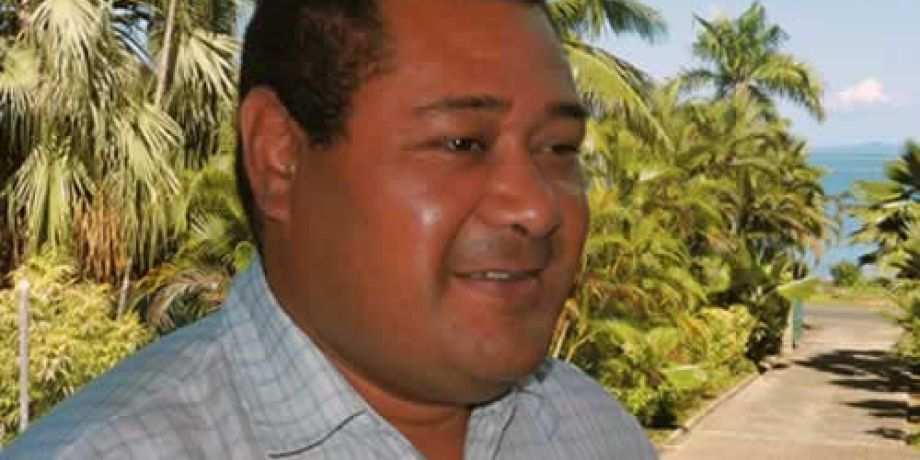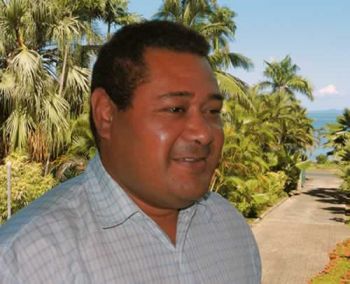
Journey to Missionary Priesthood
My only contact with the Columbans before going to the seminary in Suva, Fiji, was when Columban Fr. Frank Hoare visited my home in Tonga to interview me about becoming a Columban missionary priest.

All was therefore new when I entered the seminary formation programme in Suva, Fiji. The priests in charge were Irish. I found myself living in a community of Tongans, Fijians and Indo-Fijians. It turned out to be a great experience of living with other cultures and races. Being only 19 years of age, I was open to learning new things. A new place, new languages, new horizons, all gave me a sense of excitement.
As I prepared to become a Columban priest, I passed through different stages. I found the four years of studies in the seminary in Suva to be positive and enriching. Sharing life with other young men growing in their vocation broadened my appreciation of human diversity. I realized that I could learn a new language and that I could make friends with people who were not Tongan. This process of cultural and personal enrichment continued after this during my year of spiritual formation in Manila, the Philippines, which was a time of intense focus on our relationship with Christ, His love for us and His call to mission.
After the Philippines I was sent to Peru for a two year missionary experience. I was 25 years of age when I arrived there. I worked in a Columbanrun parish in a poor area in Lima. This period was central in my continual discernment process for deciding to become a missionary priest.
In Peru I had the good fortune of having as my spiritual director a Marist Sister from Tonga who had already worked for many years there, both in grassroots mission in the Andes Mountains and also in the preparation of young Peruvian women preparing to become Marist Sisters. She was a very practical woman whose advice to me was always firmly based on experience. I found her most helpful as I struggled to deal with a variety of new situations in this different culture.
My next port of call during my formation program was Chicago, Illinois. I spent two years there completing my theological studies. My previous experience of education was one of learning what the teachers taught and repeating this back in examinations. The teachers in Chicago challenged us to think for ourselves. They would explain the issues but also invite us to use our own ideas. This approach opened me to a variety of social justice and theological issues.
After completing my theological studies in the United States, my mission experience in Peru, my spiritual formation in the Philippines and my initial studies in Fiji, I was now ready for ordination as a priest. At the age of 29 I was ordained back home in Tonga. I then spent a year in Fiji waiting for a visa to Pakistan, my next mission assignment.
Christians in Pakistan are a very small minority and as such are always on the back foot and often persecuted. Our Columban presence among the Muslim people of Pakistan is a witness of solidarity and the perseverance of the Pakistani Christians is in turn an inspiration to me.
I remember with admiration a catechist in the parish in Badin. His name is Tony Kajoo, and he is a member of the tribal community, the Parkari Koli people. Tony Kajoo had been an active catechist for over 30 years. He walked and cycled many miles visiting the villages of his people to instruct both children and adults. Very few of his people are literate. They seldom own the land where they live and work. Their ancestors were members of a very low caste Hindu group and are traditionally looked down upon by both Hindus and Muslims. That did not prevent Tony from being a shining light to many, including myself.
Even though he had retired when I asked him if he would like to continue as a catechist, he still responded with an enthusiastic, "yes." In his work with illiterate people he could not use a written text so he wove banners with colourful scenes that depicted the mysteries of our faith.
I said goodbye to our Pakistan mission after six years when I was asked to work in the Columban seminary formation programme in Suva. So, 20 years after first arriving in Suva to join the Columbans, I was now back again, this time to help other young men from the Pacific region to navigate their way through the seminary formation program.
I feel that I am well-placed to understand our Pacific island culture. When in disagreement or upset about something, instead of speaking up and stating our case, we Pacific Islanders tend to be silent and uncooperative. I can spot this when it happens and help our young men respond in a more proactive and creative way.
For me, being a Columban missionary has been, and I hope it continues to be, both challenging and personally enriching.
Columban Fr. Felisiano Fatu lives and works in the Columban Formation House in Manila, the Philippines.